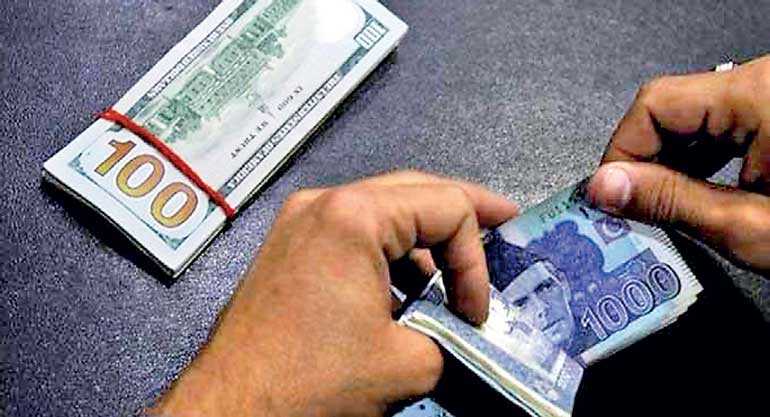Wednesday Feb 25, 2026
Wednesday Feb 25, 2026
Thursday, 20 September 2018 00:18 - - {{hitsCtrl.values.hits}}

A currency trader counts Pakistani rupee notes as he prepares an exchange of dollars in Islamabad, Pakistan - REUTERS
ISLAMABAD (Reuters): Pakistan’s new government announced cuts in planned development spending and a tax increase for higher earners on Tuesday, unveiling a mini-budget aimed at shoring up an economy in danger of needing another International Monetary Fund bailout.
Since taking office in mid-August, Prime Minister Imran Khan’s populist government has urgently sought to avert a currency crisis, with analysts expecting the country to request IMF help due to a ballooning current account deficit.
Presenting his mini-budget to parliament, Finance Minister Asad Umar described the economy as being in an ‘intensive care unit’, while announcing measures he said would boost revenues by 183 billion rupees ($1.5 billion).
Umar outlined other steps being taken to reduce a budget deficit that ballooned to 6.6% in the fiscal year ending June 30, including amendments to the 2018/2019 spending plans announced by the previous government in May.
Developmental spending, which was planned to hit 800 billion rupees in 2018/2019, has been trimmed to 725 billion.
“These are immediate fiscal measures for the economy that at present is in ICU,” Umar said, adding that the budget deficit was set to expand to 7.2% without these new measures.
Umar said it was vital to trim spending and reduce Pakistan’s reliance on debt.
Umar rolled back tax cuts awarded to top earners by the previous Pakistan Muslim League-Nawaz (PML-N) government, which slashed taxes including the top rate of tax to 15% from 30%.
Now salaried people earning over 200,000 rupees per month face tax rates of up to 25%, and non-salaried up to 29%.
“We will raise 183 billion rupees in additional revenue. Half will come by instituting better administrative procedures that use technology to plug leaks in the system,” Umar said, referring to tax avoidance.
Umar also announced higher import duties for luxury vehicles and higher tobacco taxes, while an increase in the levy on petrol was scrapped.
“We have placed 100% of the burden on rich people,” Umar told parliament.
Khan’s government has sought to implement a programme of austerity, including selling the prime minister’s luxury vehicles and converting colonial-era government buildings into public spaces, though critics have labelled the efforts a gimmick.
Umar said Pakistan needs to get out of a cycle of economic instability, and it was vital to reduce spending, but without hurting the poor.
“The poor already have their few resources stressed, we cannot burden them further,” he added.